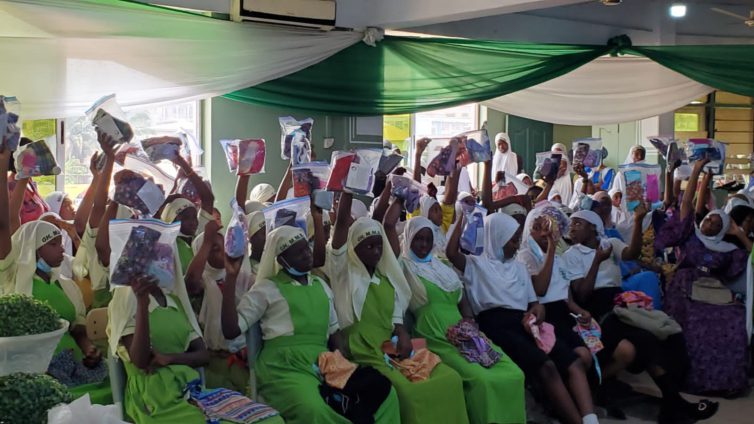The Federation of Muslim Women Association of Ghana (FOMWAG) is urging parents to educate girls on proper menstrual health to deal drastically with rising cases of teenage pregnancy.
According to FOMWAG, teenage girls must better understand and appreciate the effects of the menstrual cycle, even at an early age.
An understanding of menstruation and its relationship to fertility can help girls avoid unintended pregnancies.
At a menstrual cycle awareness event in Kumasi, various speakers highlighted the relationship between menstruation and fertility.
Organized by the Bridge To Africa Connection in partnership with FOMWAG and the Asante Zongo Youth Association (AZUYA), the event seeks to empower young girls to live better lives.
According to the GHS, a total of 109,888 teen pregnancies with the lowest girls put in the family way being 10-year-olds was recorded in 2020.
The World Bank collection of development indicators indicates that in 2019, about 2,380,000 teenage mothers between the ages of 15 to 19 were found in Ghana.
According to the report, girls between 10 and 14 years old account for 2,865 pregnancies in 2020 while 107,023 girls between the ages of 15-19 got impregnated during the same period.
One of the major causes of teenage pregnancies is the lack of adolescent and reproductive health education in most communities.
Executive member of FOMWAG, Taiba Hilla says it is important for parents to enlighten their girls on menstrual periods.
She states that such steps by parents will help curb teenage pregnancy and prevent them from contracting sexually transmitted infections (STIs).
A representative of the Bridge To Africa Connection, Akosua Abrafi Akoto encourages girls to effectively take good care of their bodies, especially during their menstrual period.
She's convinced the step will help build the confidence of young girls to concentrate on their education as well as remain clean and healthy.
Some of the girls who participated appeal to parents to do more in order to support them to realize their dreams as a lack of pad can prevent them from attending school.
Some of the items donated include school bags, sanitary pads among many other things worth several thousands of cedis.
Latest Stories
-
I aim to help Ghana produce world-class athletes – Asamoah Gyan
6 mins -
Ashanti Regional Minister alleges sabotage in electricity supply
10 mins -
2024 Elections: Dampare urges Ghanaians to prioritise patriotism and display maturity
18 mins -
‘Let it rot’ campaign hits fish prices in Egypt
25 mins -
Otumfuo chalks 25 years on Golden Stool today
29 mins -
Saudi could get first Miss Universe contestant this year
35 mins -
Ghana Shippers’ Authority initiates steps to sign Service Level Agreements with stakeholders
36 mins -
Fuse ODG supports rising artiste, Fred Kobby, with funds for music video
40 mins -
Mohbad’s toxicology result finally ready
46 mins -
Giggs releases ‘Hallelujah’ video featuring Lojay
50 mins -
Mustapha Ussif wins African Sports Minister of the Year Award.
58 mins -
Sons shouldn’t be mothers’ emotional support system – Ethel Adjololo
1 hour -
Family threatens to take on Trinity Hospital over missing corpse
1 hour -
Kofi Kinaata unfazed by death prophecies
2 hours -
Jospong Group partners Komptech to train over 600 stakeholders on integrated solid waste management
2 hours

